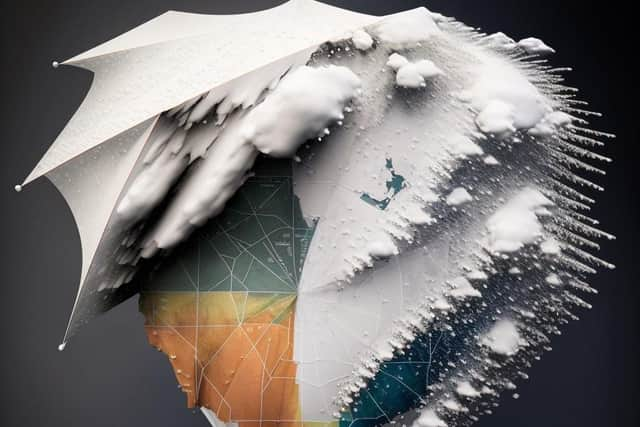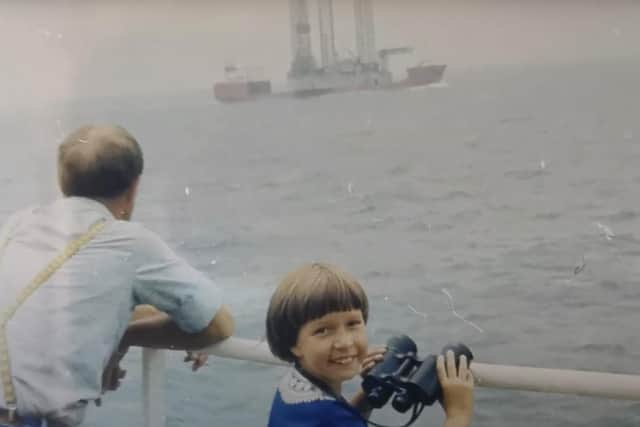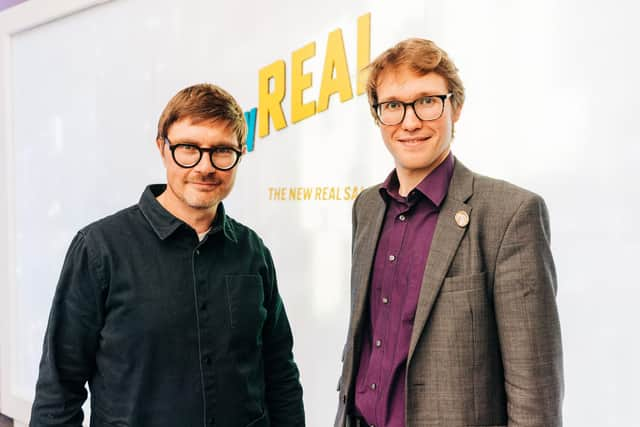How Artificial Intelligence (AI) is going to change the world of art in profound ways
Truly great art tackles the big questions we face as a society. There is no bigger challenge today than AI, and so we expect that art made with AI will be the most compelling, most interesting art of our times. In our work at The New Real, we are hoping to see art produced with AI that we cant even imagine yet.
View here our Uncanny Machines film on the work of five inspirational AI artists, www.newreal.cc/uncanny.
Advertisement
Hide AdAdvertisement
Hide AdWith generative AI, you will have an auto-complete for everything, a superpower sidekick, one that has been trained on every publicly available image or text. You can think of AI as a creative partner rather than as a creator in its own right, computers do not have intent, imagination or ideas.


AI is not going to end humanity, but there are very real challenges now, from harmful bias in the data, to excessive energy use. Misinformation and deep fakes are a huge problem, and urgent work is taking place to create markers so that synthetic media created by computers can be identified.
AI often generates falsehoods and anomalies, until recently the current tools were unable to depict human-like hands with a full set of five fingers, because hands are hard to statistically represent.
The uncanny interplay of humans and machines, and the profound shift that is happening thanks to recent developments in AI, is explored by five inspirational artists in our latest project, Uncanny Machines.
How to find the Soul of a Sailor


Kasia Molga is using AI to bring her dad back to life – by convincingly 'recreating' fragments of his personality to create an illusion of his presence. As a child, Kasia travelled with her sailor father on merchant navy vessels.
He passed away quite unexpectedly 15 years ago, leaving diaries from his journeys. Kasia has made a film in which she looks ahead to a very personal journey to find the soul of her father in data from a life on the seas, and reflects on the implications of resurrecting a person who is no longer with us.
Artificial Superintelligence
In the coming years, the complexity of both AI and extreme weather events is likely to exceed human understanding. Alice Bucknell has created a fictional film set in the future and narrated by an AI that looks at what the weather may look like in 2097.


She looks back at how hurricanes have been reported in the past, and presents a speculative vision on how our ways of knowing the world are going to profoundly change. Alice's film can help us come to terms with the power of what is coming and shows us that we may become attuned to other ways of visualising, describing, and understanding the weird weather patterns of the future.
Asking the Wrong Questions about Generative AI
Advertisement
Hide AdAdvertisement
Hide AdWe should beware of the dangers of the 'large language models' powering generative tools like ChatGPT that hoover up all data without consent, generate falsehoods, and are energy intensive. The next time you use generative AI, take time to consider the hundreds of thousands of unwitting co-authors whose content was scraped online.
Sarah Ciston presents an alternative vision for community-centred approaches to machine learning and more conscientious dataset stewardship. Watch Sarah's film for a guided tour through the artistic and ethical implications of large-scale collaboration between machines and humans, and the impact of automated systems on language use and creative collaboration.
Voicing the Unspoken
One of the biggest problems in AI is that it reflects the biases of society, and there is a lack of diversity in AI data. Voice assistants such as Alexa are today found in many homes, and they reflect this harmful bias. Johann Diedrick and Amina Abbas-Nazari tackle this problem by giving voice to unheard voices, and examining the origin of synthetic voices that are speaking to us today.
Using data from The British Library, they plan to expose who has been omitted and what is not given space to be voiced on the pages of daily newspapers. See how it is possible to use textual AI models to "fill in the gaps" of voices missing from historical data, produce speculative speech that never existed, and make those voices audible for contemporary ears.
Fold Me, Bend Me, Break Me, Said the Computer
Linnea Langfjord Kristensen and Kevin Walker use live performance as a means of explaining our entanglements with technology. The creative work of artists gone by is absorbed into the vast datasets on which AI is trained.
With generative AI tools, we type a few words as a prompt, see what the AI generates, select what we like, and rework it into something new.
We are now seeing AI generated content used to train new AI models. Original content is used to generate synthetic media, which is used to retrain the model, and the model is used to generate something original and new.
Synthetic media is like a simulation in a perpetual loop. In a folded world of multiple intelligences, Linnea and Kevin introduce the 'fold' as a new metaphor to understand AI, asking how much agency we really have, and what can we do about it?
Watch the Uncanny Machines film, and the artists' individual films here. One of these five artists will be awarded The New Real 2023 Art Commission to bring their concept to life.
Comments
Want to join the conversation? Please or to comment on this article.